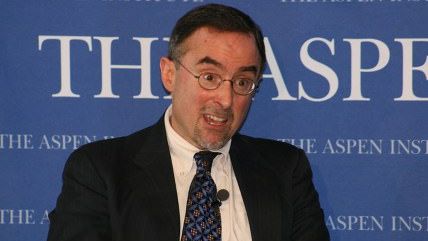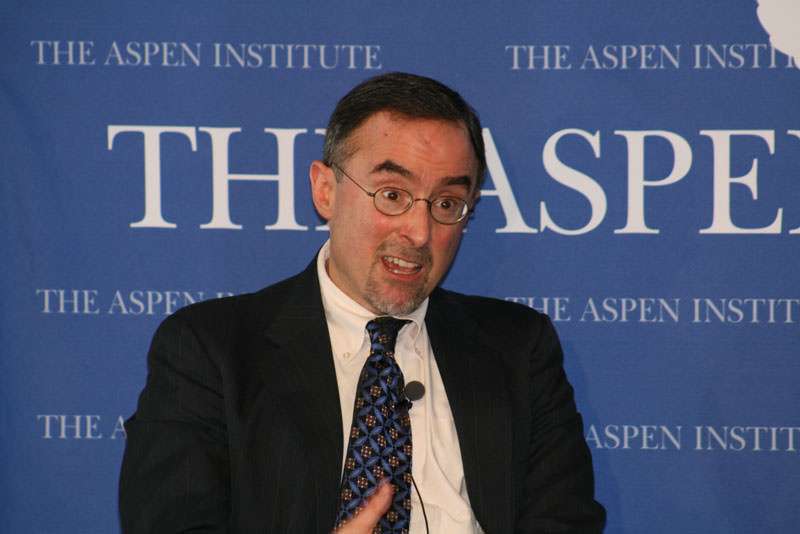At The New York Times, a Sudden Appreciation for Media Censorship with Greenwald


Michael Kinsley, an editor known for his work at The New Republic, the Los Angeles Times, Crossfire, and for helping found Slate, was handed the high-profile task of penning the New York Times review of Glenn Greenwald's book about the Edward Snowden affair, No Place to Hide.
Kinsley does not appear to be a fan of Greenwald's somewhat grandiose personality and sense of self-importance, and there's certainly room to judge him for such flaws. But those traits are also fairly common in prominent media figures. Kinsley points out that for all of Greenwald's complaining about the media kowtowing to government requests to withhold information from Edward Snowden's documents, Greenwald certainly hasn't been prevented from providing this information and the public hasn't been denied the chance to hear about it.
But then Kinsley turns around and justifies all of Greenwald's fears, arguing that some sort of authority figure should have some sort of control or oversight over what sort of leaks the press should be allowed to publish. In some analysis that is getting a bit of attention (and not of the positive kind), Kinsley writes:
The question is who decides. It seems clear, at least to me, that the private companies that own newspapers, and their employees, should not have the final say over the release of government secrets, and a free pass to make them public with no legal consequences. In a democracy (which, pace Greenwald, we still are), that decision must ultimately be made by the government. No doubt the government will usually be overprotective of its secrets, and so the process of decision-making—whatever it turns out to be—should openly tilt in favor of publication with minimal delay. But ultimately you can't square this circle. Someone gets to decide, and that someone cannot be Glenn Greenwald.
In a democracy, the decision on whether to release secret information showing illegal or corrupt behavior by the government should ultimately be made by the government? What does that even mean? Several paragraphs before, Kinsley acknowledged that Snowden's leaks were a valid exposure of bad behavior by the National Security Agency (NSA). He even calls the NSA's actions "lawbreaking."
And it wasn't actually Glenn Greenwald who decided. The first person to decide that the information should be published was Edward Snowden, and the United States government is trying to put him in prison for providing information Kinsley himself thinks should have been made public. Snowden chose Greenwald to receive the information.
Kinsley seems to think there's a piece missing in the checks and balances of revealing government misbehavior. He concludes his review:
As the news media struggles to expose government secrets and the government struggles to keep them secret, there is no invisible hand to assure that the right balance is struck. So what do we do about leaks of government information? Lock up the perpetrators or give them the Pulitzer Prize? (The Pulitzer people chose the second option.) This is not a straightforward or easy question. But I can't see how we can have a policy that authorizes newspapers and reporters to chase down and publish any national security leaks they can find. This isn't Easter and these are not eggs.
My response: The free press and freedom from government prior restraint is the check and balance here. We don't have a "policy" that authorizes the media to publish leaks. We have a constitutional right to do so, and it horrifies me to see an editor who thinks that the First Amendment is some sort of government "policy" and not a carefully worded restriction of government authority. Greenwald is the balance.The existence of a media able to publish whatever information it can get its ink-stained hands on is intended to discourage a secretive government.
If the government doesn't want people leaking what it's doing, the solution is actually pretty simple: Don't be the kind of government that secretly does the kind of things that horrify your own citizens to the point that they're willing to risk prison and flee to horrible countries to expose to the public what the government is doing. To believe that the lesson from the Snowden affair is more government authority over the media—even after agreeing that Snowden's fears were legitimate—is simply embarrassing.
Start your day with Reason. Get a daily brief of the most important stories and trends every weekday morning when you subscribe to Reason Roundup.
NEXT: NYPD Mulls Using Microphone-Equipped Drones
Scott Shackford is a policy research editor at Reason Foundation.


Show Comments (95)